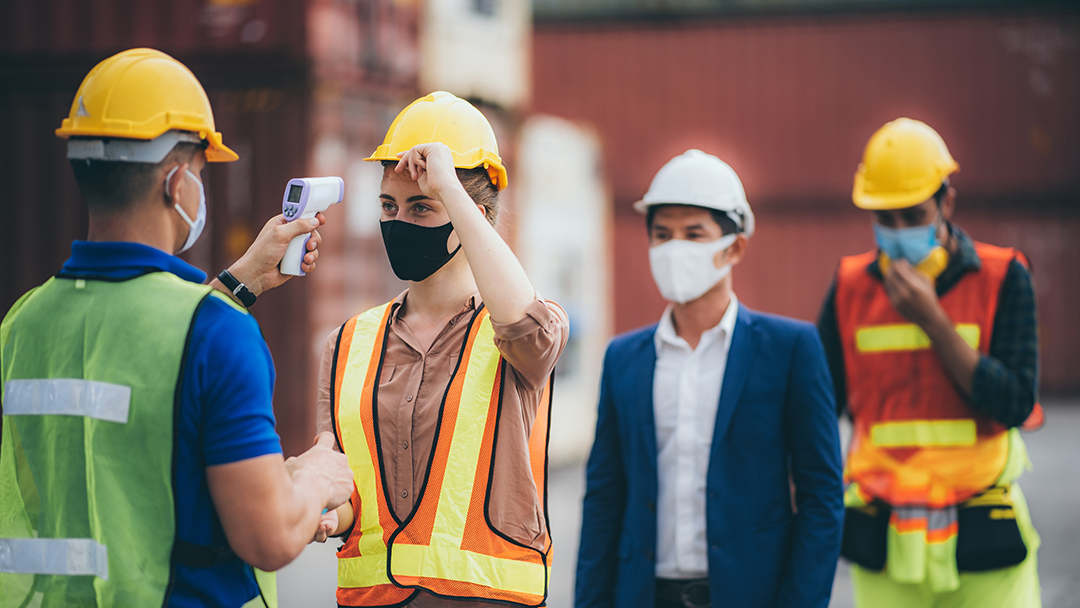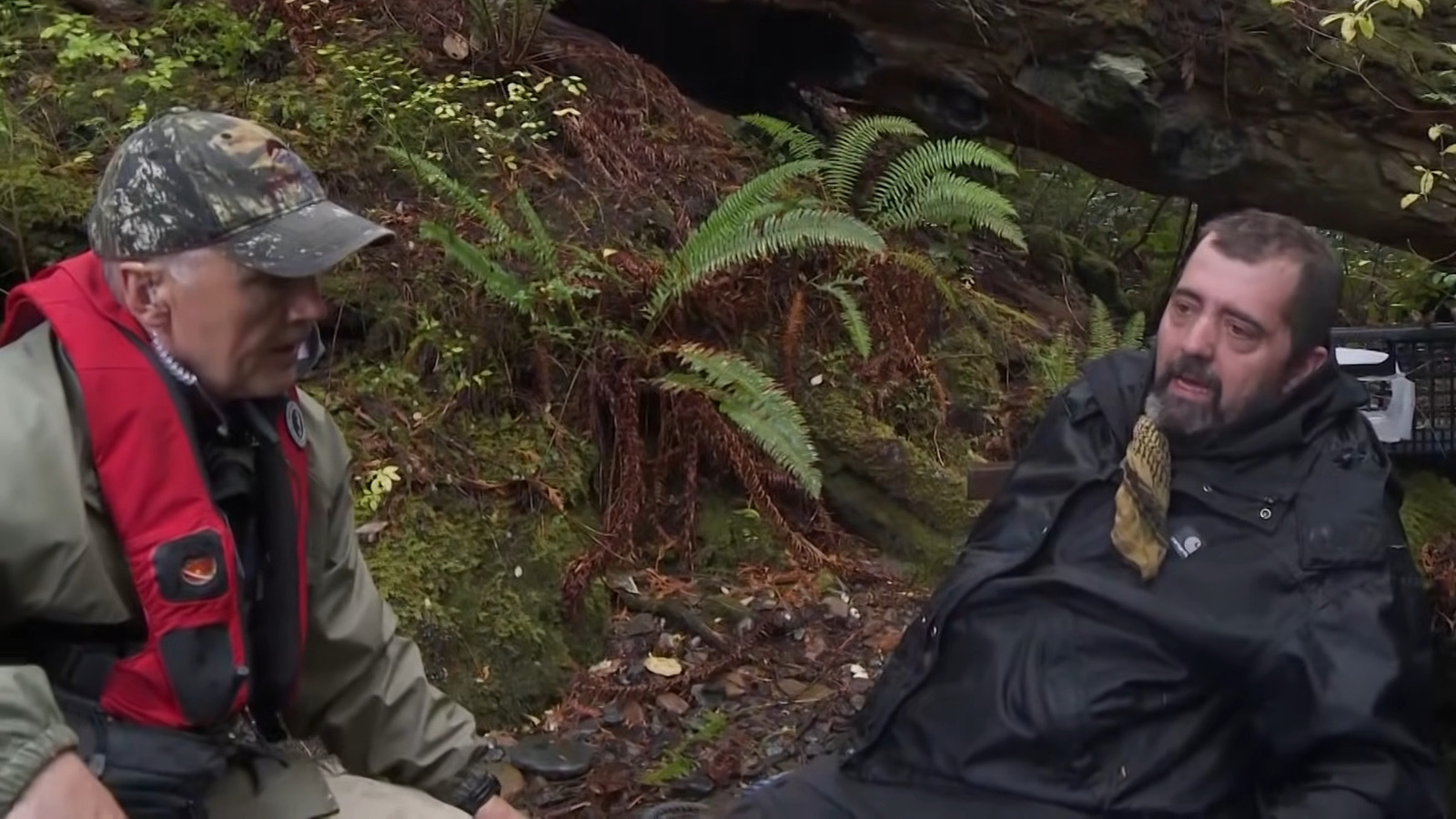Survival shows have always been a fan favorite when it comes to reality TV. But have you ever wondered about the behind-the-scenes aspect of these shows? Specifically, how often are med checks on Alone? This question is not only intriguing but also crucial for understanding the safety measures implemented in such extreme environments.
Imagine being dropped in the middle of nowhere with nothing but your wits and a few basic tools. Sounds thrilling, right? Well, that's exactly what participants on Alone experience. But don't worry, even in the wild, there are rules and regulations to ensure everyone stays safe. Med checks play a vital role in this process.
As we dive deeper into the world of survival shows, it's important to understand the significance of medical checks. These aren't just random visits; they're carefully planned procedures designed to protect the participants from harm. So, let's explore the frequency and importance of med checks on Alone and how they contribute to the overall experience.
Read also:Elinor Tully Ellie Monahan A Rising Star In The Spotlight
Understanding the Concept of Alone
Before we delve into the specifics of med checks, let's first understand what Alone is all about. Alone is a reality TV show where participants are left in remote wilderness locations with minimal supplies. The goal is simple yet challenging: survive as long as possible without any outside help.
But why is Alone so popular? Well, it's not just about survival; it's about pushing the limits of human endurance. Each participant is tested mentally, physically, and emotionally. The show provides a raw and unfiltered look at what it takes to survive in the wild.
Now, let's talk about the importance of safety in such extreme conditions. Med checks are a crucial component of the show's safety protocols. They ensure that participants are in good health and can continue with the challenge. But how often do these checks occur? Let's find out.
How Often Are Med Checks on Alone?
The frequency of med checks on Alone varies depending on several factors. Generally, participants undergo medical evaluations at least once every two weeks. However, this can change based on the participant's health status or any unforeseen circumstances.
These checks are conducted by professional medical staff who assess the participant's physical and mental well-being. The evaluations include vital signs, nutritional status, and any signs of illness or injury. This ensures that participants are in top condition to face the challenges ahead.
It's important to note that med checks are not just about ticking boxes; they're about ensuring the safety and well-being of the participants. The show takes these measures very seriously, as the wilderness can be unpredictable and dangerous.
Read also:Elisabeth Fritzl After Release A Journey Of Survival And Redemption
Why Are Med Checks Important?
Med checks serve multiple purposes on Alone. Firstly, they provide a safety net for participants. The wilderness can be harsh, and without proper medical attention, even minor injuries can become life-threatening. Regular checks help identify and address potential health issues before they escalate.
Secondly, med checks offer participants a chance to communicate with medical professionals. This can be comforting, especially when they're facing immense stress and isolation. It's a reminder that they're not completely alone, even in the most remote locations.
Lastly, med checks contribute to the overall credibility of the show. By prioritizing participant safety, Alone sets a standard for other survival shows. It shows that even in extreme conditions, safety is always the top priority.
What Happens During a Med Check?
During a med check, participants are thoroughly evaluated by medical professionals. The process usually involves:
- Checking vital signs such as blood pressure, heart rate, and temperature.
- Assessing nutritional status and hydration levels.
- Examining any visible injuries or signs of illness.
- Discussing any concerns or symptoms the participant may be experiencing.
These evaluations are comprehensive and aim to identify any potential health risks. The medical team works closely with the production crew to ensure that all safety protocols are followed. This collaboration ensures that participants are well taken care of throughout their journey.
The Role of Medical Staff
Medical staff on Alone play a crucial role in ensuring participant safety. They are highly trained professionals who specialize in wilderness medicine. Their expertise allows them to handle a wide range of medical issues that may arise in the wild.
But what makes these medical professionals unique? They possess a combination of medical knowledge and outdoor skills. This enables them to provide effective care in challenging environments. Their presence on the show is a testament to the importance of safety in extreme conditions.
Moreover, medical staff maintain confidentiality and respect the participants' autonomy. While they are there to ensure safety, they also understand the importance of allowing participants to face the challenges on their own. This balance is crucial for the authenticity of the show.
Common Health Concerns in the Wilderness
Surviving in the wild comes with its own set of challenges. Participants on Alone often face common health concerns such as:
- Dehydration and malnutrition.
- Infections from cuts and scrapes.
- Exposure to extreme weather conditions.
- Mental health issues due to isolation and stress.
Med checks help address these concerns by providing timely interventions. For instance, participants may receive hydration packs or nutritional supplements to combat dehydration and malnutrition. Infections are promptly treated to prevent further complications. Mental health support is also available to help participants cope with the psychological challenges of isolation.
How Med Checks Impact the Show
Med checks not only ensure participant safety but also impact the overall narrative of the show. They add an element of authenticity and realism to the experience. By showcasing the medical evaluations, the show highlights the importance of safety in extreme conditions.
Moreover, med checks can influence the outcome of the competition. Participants who are unable to continue due to health reasons are often removed from the show. This adds a layer of drama and unpredictability to the storyline. It also emphasizes the importance of prioritizing health over competition.
Participant Experiences with Med Checks
Participants on Alone have shared their experiences with med checks, providing valuable insights into the process. Many have expressed gratitude for the medical attention they received, especially during challenging times. Others have mentioned how med checks helped them push through difficult situations.
One participant shared, "The med checks were a lifeline for me. They gave me the confidence to keep going, knowing that there was someone looking out for my health." Another participant added, "I was hesitant at first, but the medical team was so professional and caring. They made me feel safe even in the wildest conditions."
These testimonials highlight the positive impact of med checks on the participants' experience. They reinforce the importance of safety measures in reality TV shows.
Challenges Faced by Medical Teams
While med checks are crucial, they come with their own set of challenges. Medical teams often face logistical hurdles in remote locations. Access to medical supplies and equipment can be limited, making it difficult to provide comprehensive care.
Moreover, the unpredictable nature of the wilderness can pose additional challenges. Weather conditions, wildlife encounters, and terrain difficulties can all impact the effectiveness of med checks. Despite these challenges, medical teams remain committed to ensuring participant safety.
They adapt to the environment and find innovative ways to provide care. This flexibility and resilience are key to their success in such extreme conditions.
Future Developments in Med Checks
As technology advances, there are exciting possibilities for the future of med checks on Alone. Remote medical monitoring and telemedicine could revolutionize the way medical evaluations are conducted. These technologies could provide real-time data and allow for more frequent monitoring of participants' health.
Additionally, advancements in portable medical equipment could enhance the capabilities of medical teams in the field. This would enable them to provide more comprehensive care in remote locations. As the show continues to evolve, it's exciting to see how med checks will adapt to these advancements.
Conclusion
In conclusion, med checks on Alone play a vital role in ensuring participant safety and enhancing the overall experience. The frequency and thoroughness of these checks contribute to the authenticity and credibility of the show. By prioritizing safety, Alone sets a standard for other survival shows.
So, the next time you watch Alone, take a moment to appreciate the behind-the-scenes efforts that go into making the show a success. Med checks may not be the most glamorous aspect of the show, but they are undoubtedly one of the most important.
We encourage you to share your thoughts and experiences in the comments below. Have you ever participated in a survival challenge? What were your thoughts on med checks? Let's continue the conversation and learn from each other.
Table of Contents
- Understanding the Concept of Alone
- How Often Are Med Checks on Alone?
- Why Are Med Checks Important?
- What Happens During a Med Check?
- The Role of Medical Staff
- Common Health Concerns in the Wilderness
- How Med Checks Impact the Show
- Participant Experiences with Med Checks
- Challenges Faced by Medical Teams
- Future Developments in Med Checks


